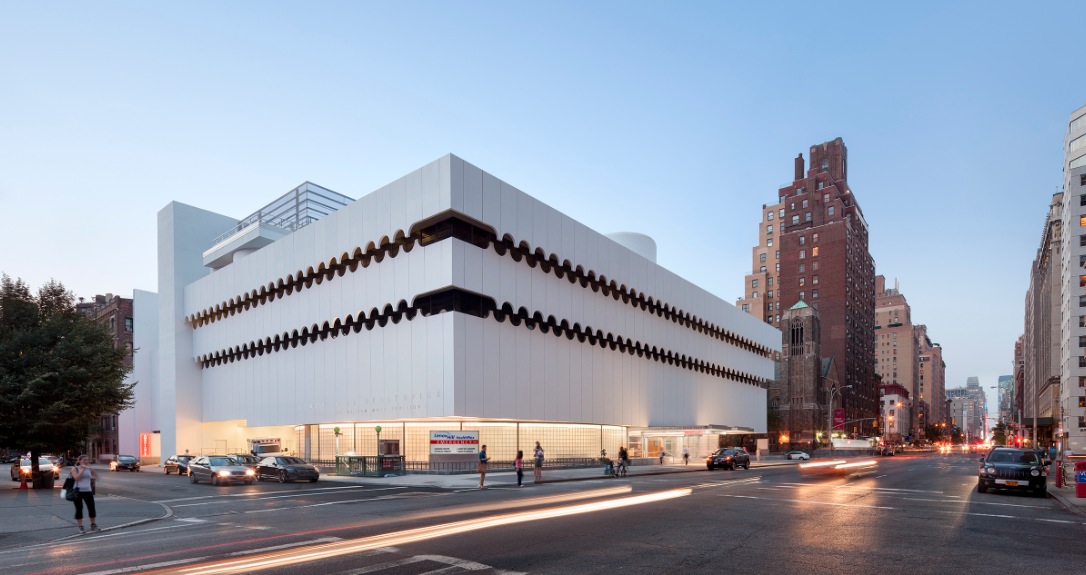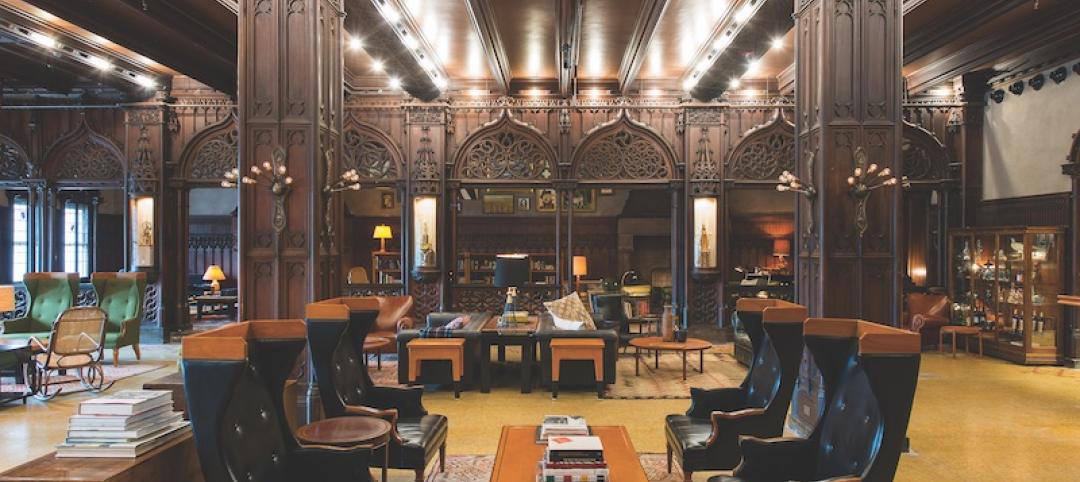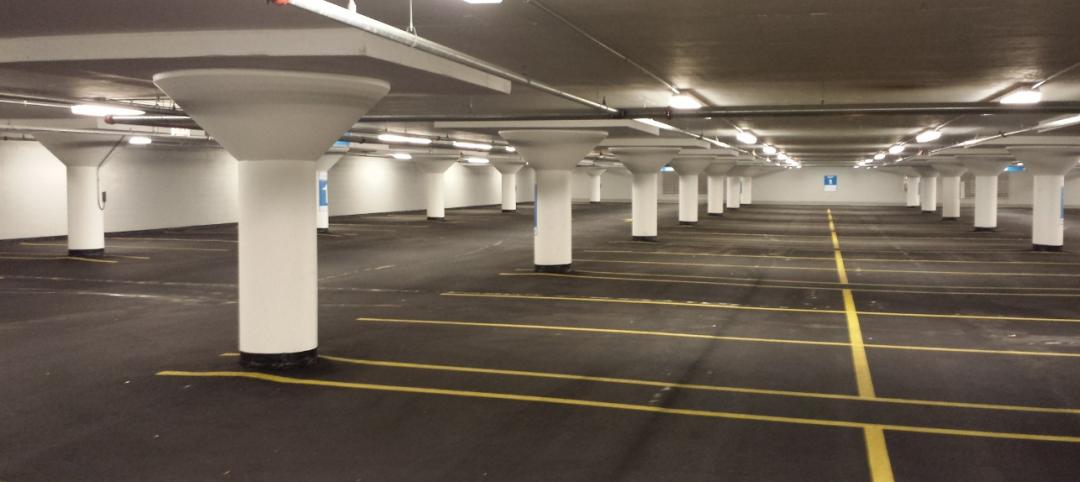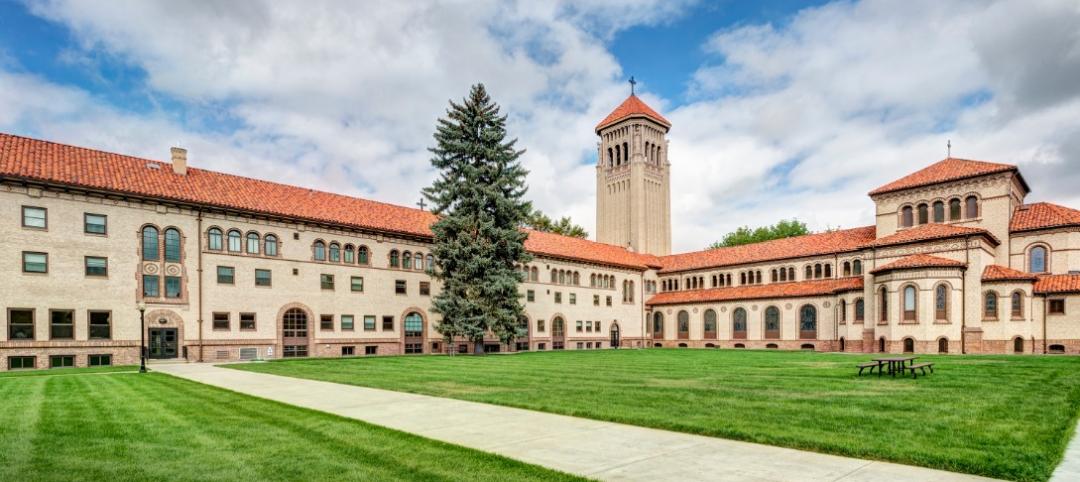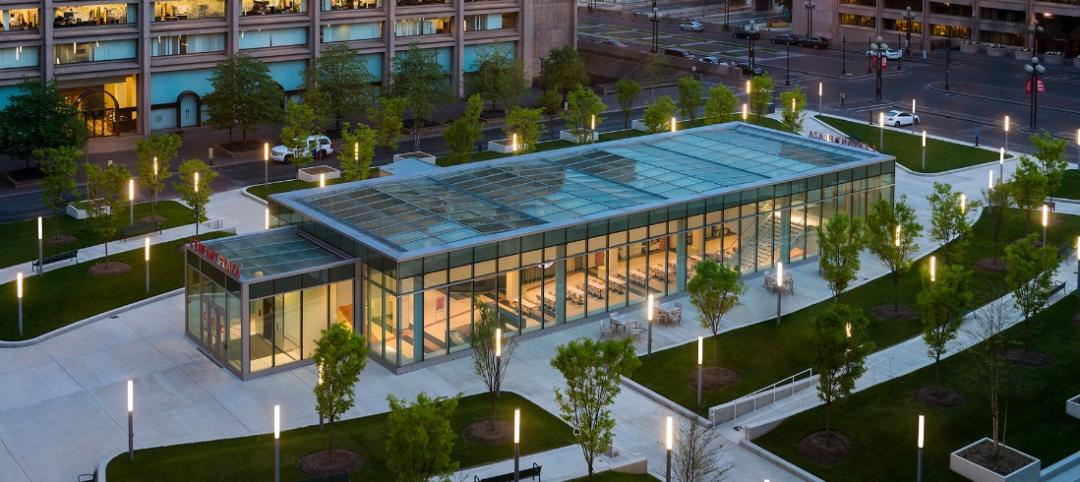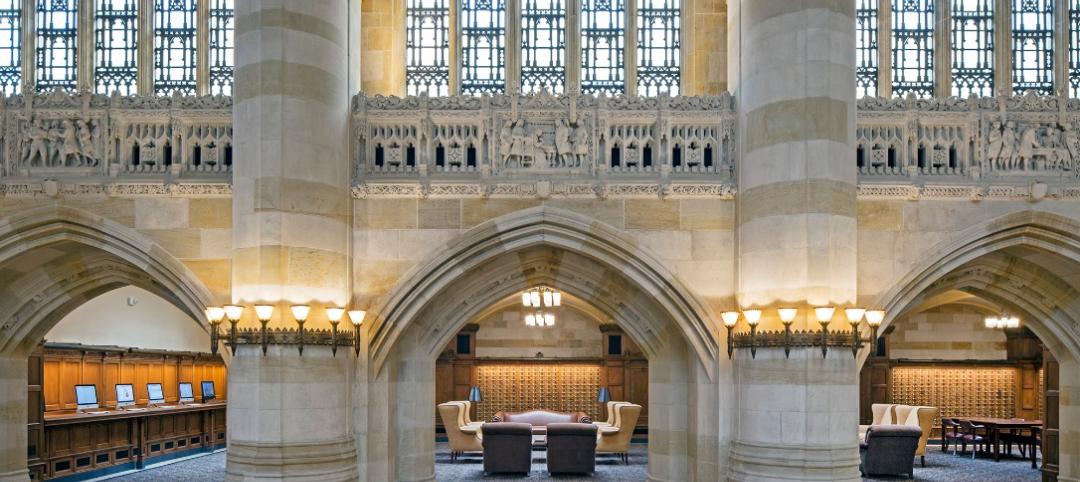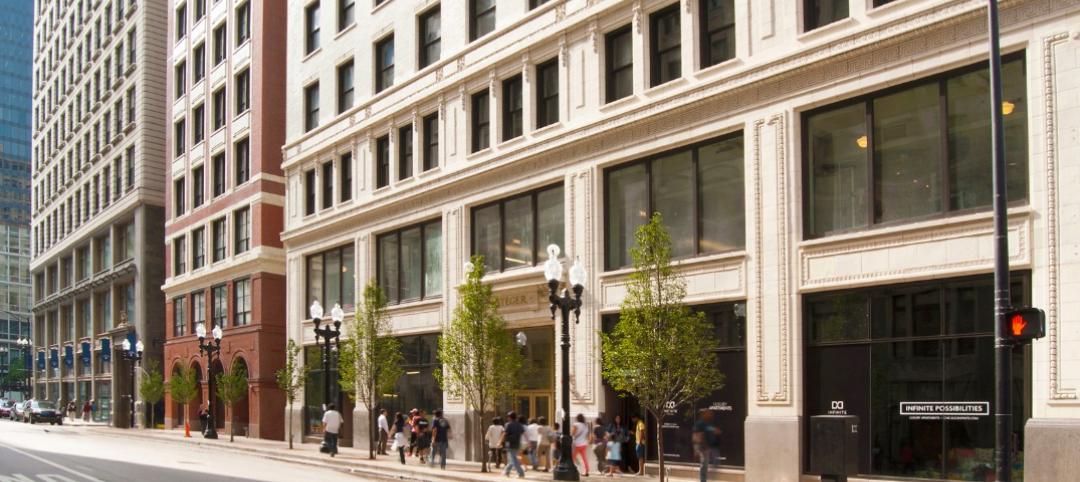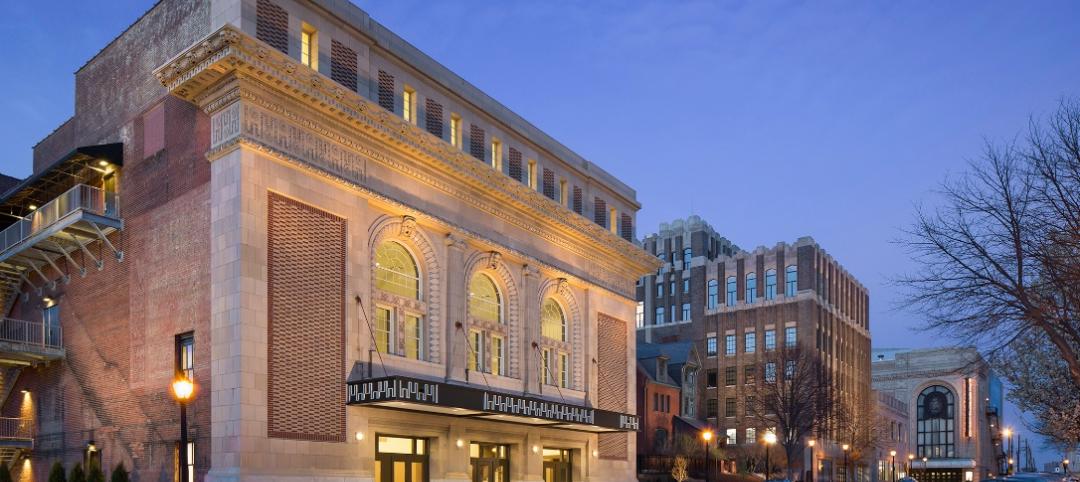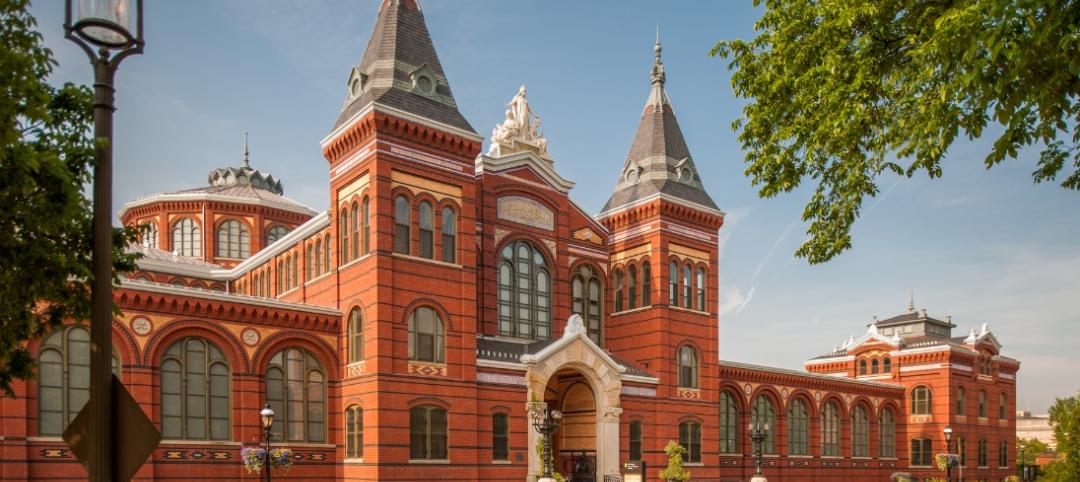Manhattan’s first freestanding emergency department, the Lenox Hill Healthplex in Greenwich Village is the result of a sensitive restoration and adaptive reuse of the once-endangered Curran O’Toole Building, a maritime-inspired structure designed in the early 1960s by Frank Lloyd Wright protégé Albert C. Ledner.
BRONZE AWARD
Building Team: Perkins Eastman (submitting firm, architect); North Shore–LIJ (owner); JLL (owner’s representative); Robert Silman Associates (SE, façade consultant); Bard, Rao + Athanas Consulting Engineers (MEP); Turner Construction Company (contractor)
General Information: Size: 160,000 sf. Completion: July 2014. Delivery method: design assist
The building’s interior was stripped down to the bones, while the exterior was carefully preserved and updated. Its newly restored circular glass-block walls flood the ground-floor ED with natural light—an unusual feature in ED design—and the removal of portions of a previously-added second floor created an uplifting double-height space.
The tight urban site and outdated structure posed a number of thorny issues for the team, such as: accommodating emergency vehicle drop-off (solution: carve out a portion of the ground floor to make way for an ambulance bay without disturbing the façade); adding surgical functions (solution: reinforce the existing structure to meet vibration standards on the surgical floor and roof, and cut new shafts for ventilation); maintaining security (solution: minimize entrance points, maximize sight lines, lighting, and cameras); and delivery/storage of medical supplies and food (solution: transform the below-grade garage into space for support services).
The upper floors, currently under construction, will feature medical offices, walk-in imaging services, ambulatory surgery, orthopedics, physical medicine and rehabilitation, and health and wellness services.
Related Stories
Reconstruction Awards | Nov 11, 2016
Adaptive reuse juices up an abandoned power plant
The power plant was on the National Register of Historic Places and is a Recorded Texas Historic Landmark.
Reconstruction Awards | Nov 11, 2016
Exclusive Chicago club re-emerges as a boutique hotel
Built in 1893 for the World’s Columbian Exposition, the CAA was an exclusive social club founded by leading figures in American sports and commerce.
Reconstruction Awards | Dec 1, 2015
Massive Chicago parking garage gets overdue waterproofing
Millennium Lakeside Garage, the largest underground parking facility in the U.S., hadn’t been waterproofed since the 1970s. The massive project took nearly 2½ years and 33,554 man-hours.
Reconstruction Awards | Nov 30, 2015
Washington Monument restored after 2011 East Coast earthquake
This restoration and repair project, which was completed under budget and eight days early (despite several setbacks), involved re-pointing 2.5 miles of mortar joints, repairing 1,200 linear feet of cracks, and installing 150 sf of Dutchman repairs. Construction took place from November 2011 to May 2014.
Reconstruction Awards | Nov 30, 2015
Denver's 107-year-old seminary campus modernized
The scope of the project included the seminary dorms, library, and chapel, all of which posed their own set of obstacles.
Reconstruction Awards | Nov 24, 2015
Center of I.M. Pei-designed plaza part of Washington redevelopment
The L’Enfant Plaza, a three-story below-grade mall, was renovated to include a new glass atrium pavilion and a 40-foot-long, interactive LED.
Reconstruction Awards | Nov 19, 2015
Nave restored at Yale’s Sterling Memorial Library
Turner Construction and Helpern Architects revived the 150-foot-long nave, which was embellished with stained glass windows by G. Owen Bonawit, stone carvings by René P. Chambellan, and decorative ironwork by Samuel Yellin.
Reconstruction Awards | Nov 19, 2015
Infinite Chicago redevelopment bridges past to present
The renovation of three historic downtown buildings—the Gibbons and Steger Buildings and Pickwick Stables—includes a multi-level concrete walkway connection.
Reconstruction Awards | Nov 18, 2015
Sun Theater serves the youth of St. Louis
Lawrence Group and property owner TLG Beaux Arts raised $11 million to restore the 26,000-sf theater into a modern performance venue.
Reconstruction Awards | Nov 17, 2015
Smithsonian Institution’s Arts and Industries Building again an exposition and museum space
After removing decades’ worth of unfortunate additions to expose 17 historic interior spaces for the National Historic Landmark, the Building Team zoned in on the client’s key concern.


